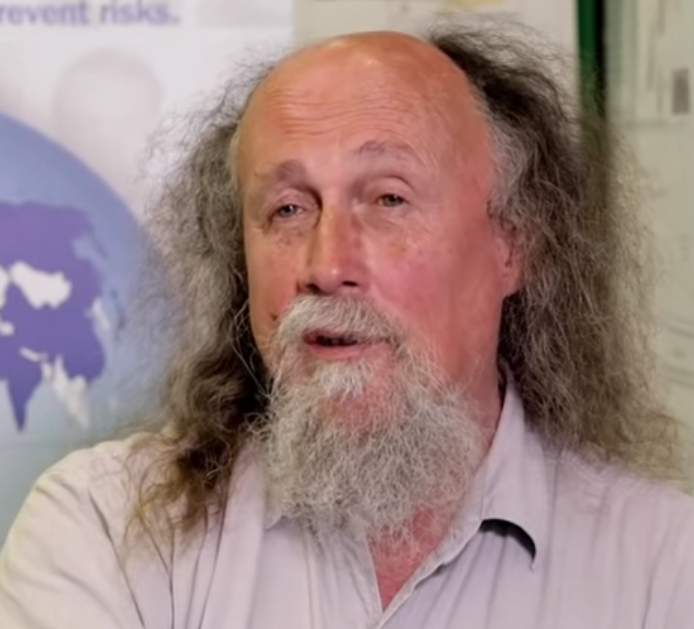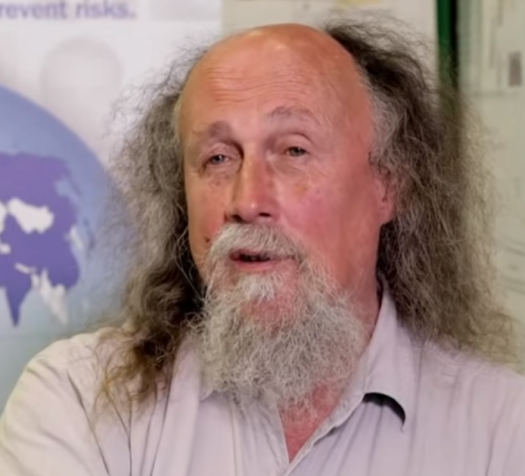Simplicity Yields More Powerful Predictions for the Biosphere Pr. Colin Prentice

Methods do exist for this purpose, but Prentice— holder of the AXA Chair in Biosphere and Climate Impacts, at Imperial College London (ICL)—was dissatisfied with the current mathematical models; they are overly complex and so full of uncertainties that their performance suffers. It doesn’t have to be this way, he thought. Making use of abundant, good quality data that had already been collected, his team was able to create a simpler, more accurate way of modeling the terrestrial biosphere.
A flaw in today’s land models is their reliance on simulations that offer very little agreement on the predictions they produce. Using real satellite data and atmospheric measurements for their models’ calculations, the Prentice team is combining the strength of observation with the latest knowledge in ecology and environmental physics. To understand changes over time in the global primary production of plants, for instance, the new model performs calculations using remote sensing data on greenness, rather than simulations.
From Better Climate Models to Food Security
With their interdisciplinary approach, they are advancing understanding of how plants operate and how their function scales up to ecosystems and regions. This will help scientists predict how plants will respond to a changing climate and what the impact will be for different ecosystems, for agriculture, and more.
The sort of knowledge produced by the fundamental science of the AXA Chair in Biosphere and Climate Impacts is well placed to find applications. One of Prof. Prentice’s students is now working on the security of the food supply, for example, in collaboration with the Global Landscapes Initiative. They are exploring multiple factors that lead to food price shocks, including not only direct effects of extreme climate events, but also how the markets respond to and even anticipate these events.
Sharing Knowledge, Quickly and Often
Prof. Prentice’s research team has already answered several longstanding questions. They have clarified the role of air pressure in the effect of altitude on plant physiology, for one, and helped to finally explain the prevalence of large leaves in tropical forests: leaves stay cooler than air at high temperatures, suggesting a way these forests may prove somewhat resilient to global warming. Further discoveries may well occur—at ICL and elsewhere—as the work of the AXA Chair in Biosphere and Climate Impacts contributes to changing the research field. Traditionally, experimental and observational scientists have worked quite separately from climate and carbon cycle modelers. Prof. Prentice’s research is helping to change that by developing models that incorporate far more information from current observations – which also strengthens the science underlying their approach.
To ensure that other scientists have quick access to the knowledge produced, the Prentice group is committed to publishing preprints of their articles. These make an early version of a study available online, before official publication in a journal. Prof. Prentice feels this is important, both to get the information out there and for the high-quality feedback they receive via readers’ comments. Interactions like these also contribute to their efforts at building an international scientific community, including many young researchers, who all believe in the need for better, more complete, more interdisciplinary ecosystem modeling.
Science for Effective Climate Policy
It’s a tall order to use that next-generation modeling to impact climate policy on a global level and Prof. Prentice can’t predict how far their influence will reach, but he knows their work is relevant. Reliable models able to predict climate change consequences will be vital for decision making around adaptation measures, food policies, species conservation and more. He is confident that, during his time as an AXA Chairholder, he will have the opportunity to interact with the people capable of effecting change.
This is important, given all the work to come. The agreement signed at the 2015 United Nations Climate Change Conference in Paris demonstrated a real political will to limit global warming, but Prof. Prentice emphasizes the amount of knowledge still needed to work out the practicalities. In terms of adaptation, for instance, assessments are being done to determine how much crop yields may realistically rise due to increases in CO2 concentration. Even if higher levels of atmospheric CO2 can benefit plant growth to some degree, climate change will also increase the need to develop more heat- and drought-resistant crops. The science behind all of these elements needs to be understood in order to inform effective policy.
A “Lifeline for Science” in AXA Research Fund Support
Tackling all this will mean departing from the typical ways of doing things, but Prof. Prentice is good at thinking differently. In his role as the AXA Chairholder in Biosphere and Climate Impacts, the academic freedom offered by the Research Fund gave him the opportunity to rethink his research and propose a program well beyond the status quo. He describes the challenge faced by this kind of novel science as government funding falls: Researchers are forced to play it safe with their proposals, reinforcing narrow specializations that can’t deliver the major advances needed to solve pressing problems in environmental science. Fortunately, he says, “the AXA Research Fund and other out-of-the-box funding agencies can be a lifeline for science.”



